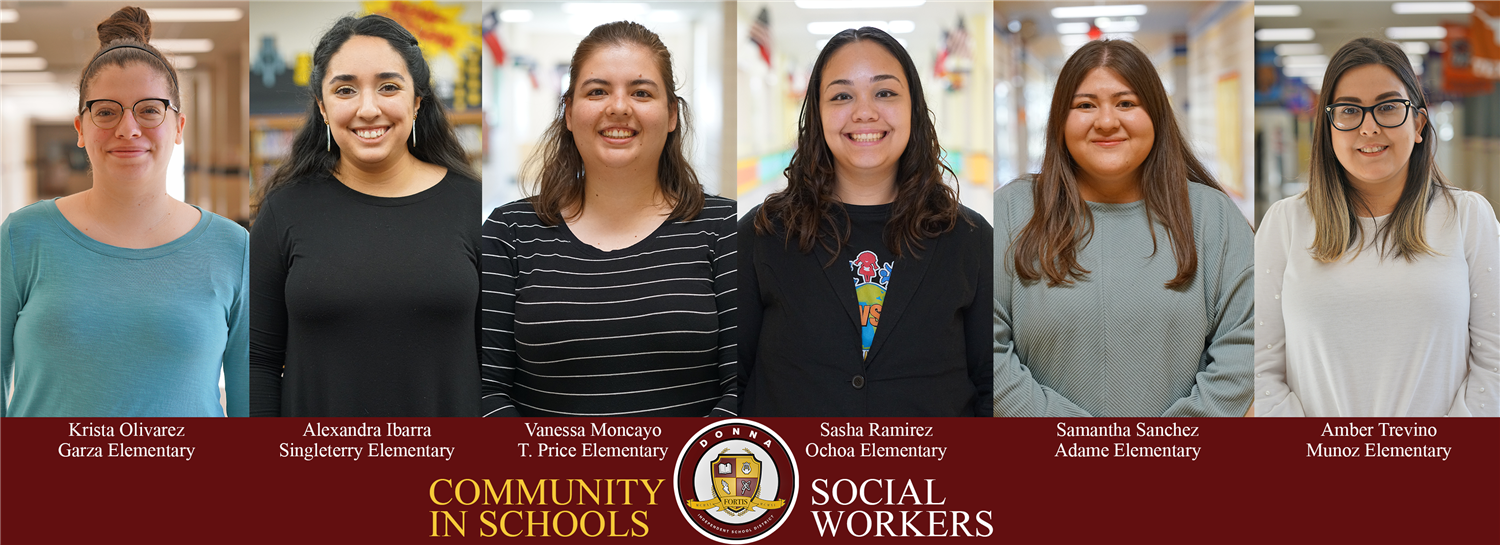- Donna ISD
- Homepage
Donna ISD Partners With Community In Schools To Provide Social And Emotional Support To Students

Donna ISD Partners With Community In Schools To Provide Social And Emotional Support To Students
It is no secret that the COVID-19 pandemic has presented many challenges to school-age children across the globe. Children coping with mental health conditions have been especially vulnerable due to changes such as school closures, physically distancing guideless and isolation.
While school districts are instructing school counselors at individual campuses to do their best to provide counseling and support to students with concerning behaviors, there are some districts like the Donna Independent School District that are taking their services a step further. Donna ISD was able to bring professional social workers into the district, thanks to a partnership with a non-profit organization called ‘Community in School’s (CIS). Superintendent Dr. Hafedh Azaiez said CIS had submitted an application to the Texas Education Agency (TEA) requesting that six social workers be assigned to work strictly with Donna ISD during the 2020-2021 academic school year. TEA approved the request at no cost to the district.
“Last year, we started working with Community in Schools, a non-profit organization that works with school districts to provide social workers,” said Dr. Hafedh Azaiez. “The great thing about this organization is that they secure half of the social workers’ salaries and benefits while the districts take care of the other half. To our surprise, this year, the organization submitted an application to TEA to have six social workers work strictly with Donna ISD, but also without the district having to pay anything. In other words, the organization is using grants and TEA funding to fully fund the six social workers who will be working all year with our students. We’re very excited about this opportunity because we want to make sure we’re protecting what’s most important – our students.”
The six schools that were assigned a social worker were Ochoa, Singleterry, Adame, Munoz, Garza and Price, all elementary schools. “We looked at the campuses with the biggest need and largest number of students which were our elementary schools,” Dr. Azaiez said.
The social workers will be coordinating with staff, parents and the community (businesses, health care agencies and other nonprofit groups) to bring outside resources inside the schools and do whatever it takes to help the students succeed.
“The social workers will be working strictly with students who are in need of the most support when it comes to their social and emotional needs,” Dr. Azaiez said. “As you know, most of our students have been at home since March. They miss the fact that they were physically going to campus and interacting with their friends, their classmates and their teachers who provided extra support. Now, with this pandemic, it is understandable that the need is greater than it has been in the past. But, our hope is that these social workers will engage with our students to provide that extra support and make sure they are not just academically doing well, but also emotionally and socially.”
The social workers will be working with students in-person or virtually depending on the situation. “We are having the social workers work virtually with our students because most of them are still at home,” Dr. Azaiez said. “However, once the students return to campus, the social workers will be working on-site with our students.”
Parents are also encouraged to monitor their child(ren)’s mental health and provide support if they notice concerning behaviors. Warning signs can include:
- being more withdrawn than usual;
- eating or sleeping too much or too little;
- having a low or irritable mood most days; or
- having no interest in activities they typically enjoy.
If these warning signs come up, parents can help connect their child with their campus social worker or school counselor.

